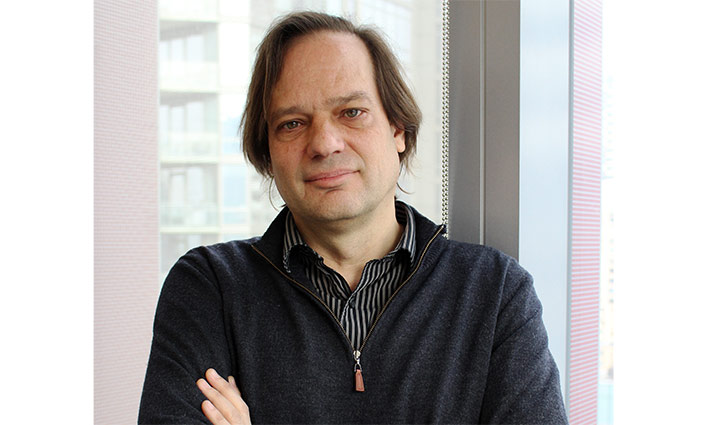
Since childhood, Professor Philip Yanos has been interested in mental health. He grew up on Wards Island, where his father worked as a psychiatrist at what was then one of the largest mental institutions in the country. As an academic, he wanted to examine more closely the issues that people with mental illness face, and his new book Written Off: Mental Health Stigma and the Loss of Human Potential, published this January by Cambridge University Press, does just that. “I was interested in looking at what was holding people back outside of themselves and inside of themselves,” Yanos said. “I found that it was stigma.”
Throughout his career, Yanos has found little literature that accurately portrays the process of stigmatization. “So much of what people learn about stigma is disjointed,” he said. In Written Off, Yanos provides a comprehensive portrait of stigma, including analyses at both the individual and societal level, as well as historical context. He describes the T4 program in Nazi Germany, and how it borrowed heavily from the eugenics movement in the United States that cast whole populations of people as inferior. “The history shows that stigma is not a new thing, and that if you take it to its ultimate conclusion, it results in murder,” he said.
Yanos’s research has far-reaching implications for understanding how societal norms and attitudes affect people on an individual level. In a study conducted by doctoral student Lauren O’Connor, LGBTQ students were found to have more difficulty coping with the micro-aggressions related to their mental illness than to their LGBTQ identity, which Yanos contends might be related to the way mental illness is talked about in mainstream discourse. “Most people who have been diagnosed are very secretive,” he said. “Because they feel dismissed and discounted, it will be a while before they feel as open as people in other groups.”
But Yanos asserts that there are ways to counter the effects of stigma, including debunking myths and misconceptions about mental illness. Debunking these myths might help people with mental illness overcome feelings of insecurity and isolation. “Psychotic experiences are pretty common,” he said. “They exist on a continuum, and they touch a lot more people than one may realize.”
Celebrating difference more generally could also help to change the perception of mental illness from negative to positive. “In my own experience, it was punk rock that made me feel that being different is good,” Yanos said. “If society can give the message that being different is something to be proud of, it might be easier for people to feel comfortable with altered states of mind.”
Yanos, who worked as a clinical psychologist in a medical school setting before becoming a professor at John Jay in 2006, has found that students at the College have no problem with accepting difference as good. “Students here are interested in justice,” he said. “I don’t have to ask if my students are willing to work with incarcerated people or those in hospitals. They already want that.”
Yanos will be speaking on campus about his new book on February 28th.



